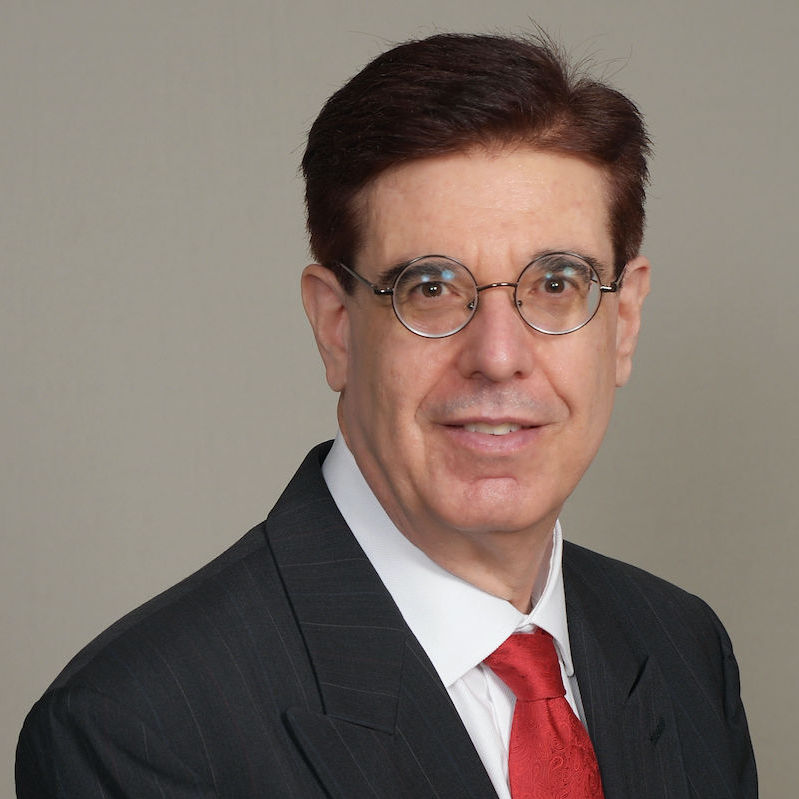A Fundamental Shift in Evangelicalism
There has been a fundamental shift in evangelicalism from orthodox Christian doctrine to the heresy of the unholy trinity, which entails changes in worldview, beliefs, and practices. The shift involves orthodoxy and heresy, where orthodoxy is true Christian teaching in accord with Scripture (2 Tim. 1:11; 2:15), and heresy is false teaching that contradicts Scripture (1 Tim. 6:3) and destroys faith (2 Pet. 2:1).
These changes have impacted not only churches but also associated organizations such as schools, publishing companies, mission agencies, scholarly societies, and the like.
And Southern Baptists are not exempt.
The unholy trinity, a postmodern antichristian cultural construction, has infiltrated our sacred spaces. Comprised of three secular ideologies—Marxism, multiculturalism, and genderism—the unholy trinity stands in direct opposition to the theological orthodoxy we should uphold and defend. Shockingly, many in the contemporary church and its associated institutions are teaching these antichristian ideas as if they are from Scripture, even though these are secular ideologies that, in many cases, originate from atheists. The rise of the unholy trinity in American evangelicalism and the Southern Baptist Convention is a grave situation that demands our immediate attention and correction.
These three ideologies are a “trinity” because they are interdependent, borrowing ideas from one another and combining ideas to make new sub-ideologies. They also function together as a single worldview or a view of reality in which all of life is viewed through the lens of race, gender, and class rather than the biblical worldview of the saved and the lost (Luke 19:10). This unholy trinity is a false or counterfeit gospel (Gal. 1:6) because both the underlying assumptions of each of its ideologies or members and the individual claims based on those presuppositions contradict Scripture.
Further, each member of the unholy trinity has historically promised good but delivered evil. Marxism promises prosperity but delivers poverty. Multiculturalism harkens harmony but brings division instead. And genderism offers healing but produces more hurt. The unholy trinity must be recognized, rejected, and replaced with genuine Christian doctrine. For example, Marxist wealth redistribution must be replaced by Christian charity (Luke 11:41; 2 Cor. 9:6–15), multiculturalism with scriptural reconciliation (Eph. 2:14–18), and genderism with the biblical creation order (Gen. 1:27).
Marxism
According to the Encyclopedic Dictionary of Marxism, Socialism and Communism and the Routledge Encyclopedia of Philosophy, Marxism is a worldview originally propounded by the atheistic-Jewish-German philosopher Karl Marx (1818–1883), entailing “a complete philosophical, political, economic, and sociological system” that “depicts the possibility of and conditions for changing the world from a capitalist to a socialist (and/or communist), economic and political order.” In this article, Marxism is an umbrella term for any political, historical, economic, or sociological ideology having its roots in the thought of Karl Marx.
The starting assumption or foundation of all Marxist thought is materialism (i.e., the idea that only the physical world exists). In the preface of his Critique of Political Economy, Marx explicitly declared the materialist starting point or foundation for all his ideas: “My investigation led to the result that legal relationships such as forms of state…are rooted in the material conditions of life…The general result, which showed itself to me, and once acquired, served to guide my studies.”
However, since Scripture affirms both a material and a spiritual reality, then Marxist materialism contradicts the Bible (Gen. 1:1–2; James 2:26). All Marxist ideas logically flowing from Marx’s materialism contradict Scripture: (1) Marxism claims people are good, Scripture says people are sinners (Rom. 3:23); (2) Marxism says materialism results in class warfare between oppressed and oppressors, Scripture says sin results in the saved and the lost (Luke 19:10); (3) Marxism says income inequality is the problem, Scripture says sin is the problem (Rom. 6:23); and (4) Marxism says systemic societal change by violent revolution is the solution, but Scripture says salvation is the solution (Heb. 9:28). Marxism’s contradiction of Scripture makes it irreconcilable with Christianity.
Two of the most common ways the first member of the unholy trinity, Marxism, has infiltrated evangelical churches and organizations, even Southern Baptist churches, is in the guise of critical race theory and social justice. One method for practicing social justice in churches is through wealth redistribution intended to counter oppression due to Marxist class warfare. For example, some back-to-school ministries distribute free backpacks containing school supplies to the poor. Some churches are using these back-to-school programs to preach the Gospel.
However, others, including Southern Baptist Convention (SBC) churches, have explicitly interpreted the government’s/the church’s role in Romans 13:4–5 as wealth redistribution rather than the enforcement of basic morality to justify giving out free back-to-school supplies without any sharing of the faith. Biblically and historically, Christian charity has always been distinguished until recently from government and other types of social programs by being accompanied by evangelism (2 Cor. 9:13; cf. Matt 28:18–20) and accountability (2 Thess 3:10; 1 Tim 5:3–16). Handouts without both are not Christian charity but rather are Marxist wealth redistribution. Among other studies, H. E. Quinley in “The Dilemma of an Activist Church” (1974) shows that going against these biblical and historical practices has resulted in church decline and closures.
Since many evangelicals have accepted Marxism, the church needs to repent and replace Marxist wealth redistribution ideas with Christian charity (Luke 11:41) accompanied by the Gospel (2 Cor. 9:13; cf. Matt 28:18–20) and accountability (2 Thess 3:10; 1 Tim 5:3–16).
Multiculturalism
Drawing from the Dictionary of the Social Sciences and other sources, multiculturalism may be understood as a socio-political ideology closely associated with “identity politics” that has its roots in Marxism. It is concerned with the socio-political-economic recognition, respect, and equality of ethnic-religious minorities through anti-assimilationist tolerance and wealth and power redistribution. Contrary to some, there is no non-ideological definition of multiculturalism which simply affirms cultural-ethnic pluralism. The far-reaching and antichristian ideological implications of multiculturalism are understood from its four popular slogans: (1) all cultures are equal, (2) celebrate diversity, (3) understanding through education, and (4) unity in diversity.
Multiculturalism has at least two antibiblical starting assumptions: (1) materialism due to its basis in Marxism and (2) moral-cultural relativism. Multiculturalism’s basis in Marxism-materialism is evident in the translation of Marx’s oppressed-oppressor class dialectic into ethnic relations such that the minority becomes the oppressed and the majority becomes the oppressor.
As also evident from the definition of cultural relativism in G. Ritzer’s widely used college textbook, Introduction to Sociology, multiculturalism involves moral relativism or equivalence. The previous discussion of Marxism already demonstrated that materialism is inconsistent with Scripture. Moral relativism contradicts the Bible’s claims that ethics is objective due to its source in God’s nature (Lev. 19:2; Ps. 119:137).
Multiculturalism’s four slogans also contradict Scripture. Since the Oxford Dictionary of Sociology defines religion as an aspect of culture, then the slogan that “all cultures are equal” entails the claim that all religions are equal. However, in Scripture, religions are not equal; Christianity is true (John 17:3), and all others are false (Ps. 96:4–5). The slogan “celebrate diversity” means to retain and emphasize ethnic differences in opposition to assimilation or acceptance and internalization of another’s culture. However, in Scripture, Christians are commanded to literally “think the same thing” in Christ (Phil. 2:2), to assimilate to the same kingdom culture of God’s will, and to reject conformity to the world-secular culture (Rom. 12:2).
“Understanding through education” means achieving diverse ethnic coexistence and tolerance by teaching about cultural equality (moral and religious relativism). However, Scripture teaches that only believers are reconciled to each other as a result of having been reconciled to God by his divine power in Christ (Eph. 2:14–18). And “unity in diversity” means that people are unified by recognizing their common experience of difference. On the contrary, Scripture teaches that believers are united by the Spirit through their common experience of and belief in one hope, one Lord, one faith, and one God (Eph. 4:3–6).
The second member of the unholy trinity, i.e., multiculturalism, has infiltrated not only local churches across all denominations but also Christian institutions. For example, the New American Commentary Series on the Bible by Broadman & Holman (B&H) of Lifeway uses the slogan “unity in diversity” to interpret Scripture. B&H also publishes at least two books promoting multicultural ministry, Technicolor and Hearing in Technicolor, by Mark Hearn, pastor at First Baptist Church in Duluth, Georgia.
The websites of the six SBC seminaries and some of their Bible colleges indicate that, to various degrees, they endorse multiculturalism (and, in some instances, also Marxism and/or feminism) by using its terminology and slogans. At least one veteran missionary of Wycliffe Bible translators (associated with the IMB since 2002) incredibly and publicly stated, “Are all cultures not made by God? They are equal.” Two studies by the respected Barna research group (2019, 2020) indicate that evangelism and missions are being stifled because many Christians now believe they are morally wrong due to beliefs in religious pluralism (contra. John 17:17; Acts 4:12) and multiculturalism’s principle of “cultural imperialism” (i.e., imposing one’s culture-religion on another (contra. Matt. 28:18–20).
Since many evangelicals have accepted multiculturalism, the church needs to repent and replace it with the Christian doctrine of reconciliation (Eph. 2:14–18).
Genderism
Genderism is the third member of the unholy trinity, and it includes a family of related antichristian cultural ideologies, including: feminism, homosexuality, transgenderism, transsexuality, and any other gender-related ideologies. Genderism is a term borrowed and redefined from the social sciences. According to a widely cited article by D. B. Hill and B. L. B. Willoughby in the Sex Roles journal, genderism came to be used in the social sciences as a pejorative term to describe the “negative judgments” of, and the “social oppression” by, people who believe gender is binary (i.e., gender is the same as biological sex) on people who believe their psychological gender is different from their physical birth sex.
Christians should understand transgenderism as the denial of God’s objective creation order (i.e., the purposeful divine structure of reality; Ps. 8:3–8) in which there are two (i.e., binary) physical sexes, male and female (Gen. 1:27), in favor of the subjective reality that gender is a socially constructed and individual mental concept. Christians should understand homosexuality as the psychological sin by which a man or a woman sexually covets (i.e., desires that which belongs to another; Exod. 20:17, cf. Matt. 5:28) the same physical sex as their own and which desire may result in sinful action (Rom. 1:24–27).
Christians should understand feminism based on the actual historical results of the last several decades, which indicate that feminism is a movement to disempower, disenfranchise, and subjugate men through social reengineering (e.g., replacing them in their jobs in the workplace, home, church, and civil society), psychological reeducation (e.g., Orwellian newspeak such as mansplaining, toxic-masculinity, etc.), and physical reconditioning (e.g., increasing estrogen levels through soy-based and other foods).
All forms of genderism have at least three antibiblical starting assumptions: (1) materialism due to its basis in Marxism, (2) moral-cultural relativism, and (3) the socio-critical method (SCM) of hermeneutics (principles of interpretation). Genderism has a basis in Marxism due to its application of Marx’s oppressed-oppressor class dialectic to gender relations: women are the oppressed and men are the oppressor (feminism); queers are the oppressed and heterosexuals are the oppressors (homosexuality); and the transgendered are the oppressed and cisgenders who affirm binary gender are the oppressors (transgenderism).
As a specific example, in Discovering Biblical Equality, feminist Stanley E. Porter (1956 b.) claimed, “Throughout history, the free male has been the dominant and oppressive power, and slaves and woman have been viewed in relatively similar terms as subordinate and oppressed to the point of mistreatment.” According to the Oxford Dictionary of Gender Studies, feminism, homosexuality, and transgenderism regard gender and/or gender roles as socially constructed or a preference rather than being something based on the objective reality of biological sex.
All forms of genderism use the SCM to interpret Scripture. In New Horizons in Hermeneutics, A. Thiselton coined the term SCM to describe the method used by feminists to interpret Scripture. The SCM may be defined as the technique of interpretation by which the reader is suspicious that the author is oppressing readers with an ideological agenda so that the reader must identify (i.e., deconstruct) and resist the author’s ideology by replacing the author’s agenda with the reader’s ideology by using some historical, sociological (e.g., cultural), grammatical-linguistic (e.g., word meaning, grammar, or translation), or other rationalization (i.e., reconstruction). Therefore, the starting assumption of all genderist interpretation is that the biblical text does not mean what it explicitly says so that each rationalization respectively denies biblical prohibitions against: women leaders (feminists); same sex attraction and sexual relations (homosexuals), and fluid socially constructed gender (transgenders).
The foundational assumptions of genderism—i.e., materialism, social construction, and the SCM—and the tenets that logically follow from these starting presuppositions contradict Scripture. The previous discussion of Marxism already demonstrated that materialism is inconsistent with Scripture. The relativistic social construction of gender and gender social roles contradicts the objective biblical creation order (Ps. 8:3–8). One of the most serious ways the SCM contradicts Scripture is by its resistance to the plain meaning of the text or by blatantly refusing “to submit to God’s law” (Rom. 8:7b).
The third member of the unholy trinity, genderism, has infiltrated local churches and Christian institutions across America under the guise of “egalitarianism” and the embrace of “gay Christians.” For example, the Presbyterian Church (U.S.A.) and much of American Lutheranism have been increasingly accepting of feminist ideology for decades, and the United Methodist Church is currently undergoing a denominational split due to homosexual and transgender issues. Southern Baptists are certainly aware of the recent turmoil in their denomination over the former pastor of Saddleback Church, Rick Warren’s defense of egalitarianism, and the continuing debate over the Baptist Faith and Message and the Law Amendment. Additionally, a 2009 study by the Barna research group indicates as women pastors doubled (1999–2009), overall attendance dropped. Further, T. G. Bandy’s 95 Questions to Shape the Future of Your Church (2009) states, “churches with a significantly higher proportion of women in leadership tend to have significantly fewer men in active membership.”
Since many evangelicals have accepted various forms of genderism, then the church needs to repent and replace it with the Christian doctrine of the creation order (Ps. 8:3–8).
Conclusion
The fundamental shift in evangelicalism from orthodox Christian doctrine to the heresy of the unholy trinity of Marxism, multiculturalism, and genderism is destroying American Christianity. Recently, Southern Baptists have also been experiencing the disastrous impact of this delusion within their denomination as well, primarily through critical race theory and debates over feminism.
Therefore, the unholy trinity is a postmodern anti-Christian cultural ideology that must be recognized, rejected, and replaced with genuine Christian doctrine.
-

Ron Rothenberg is a systematic theologian and ethicist currently serving as an independent scholar. He is the former associate editor of the Ethics and Political Economy Center. Before that, he served in local Asian immigrant churches for nearly a decade. He is the author of two books and peer-reviewed articles. He has taught as a scholar and a pastor globally. He received his Ph.D. from Southwestern Baptist Theological Seminary and is a Contributing Scholar at the Center for Baptist Leadership.

